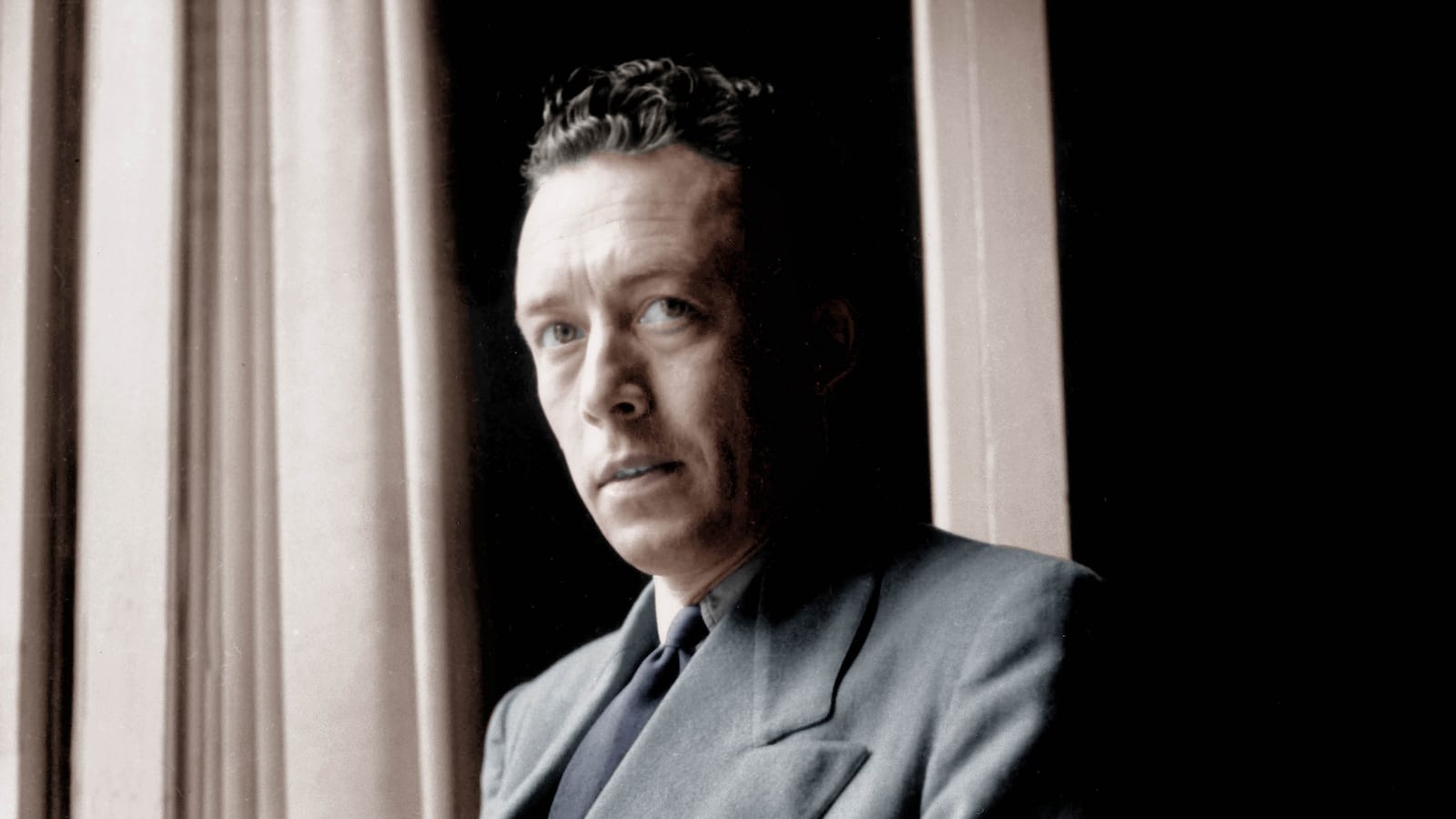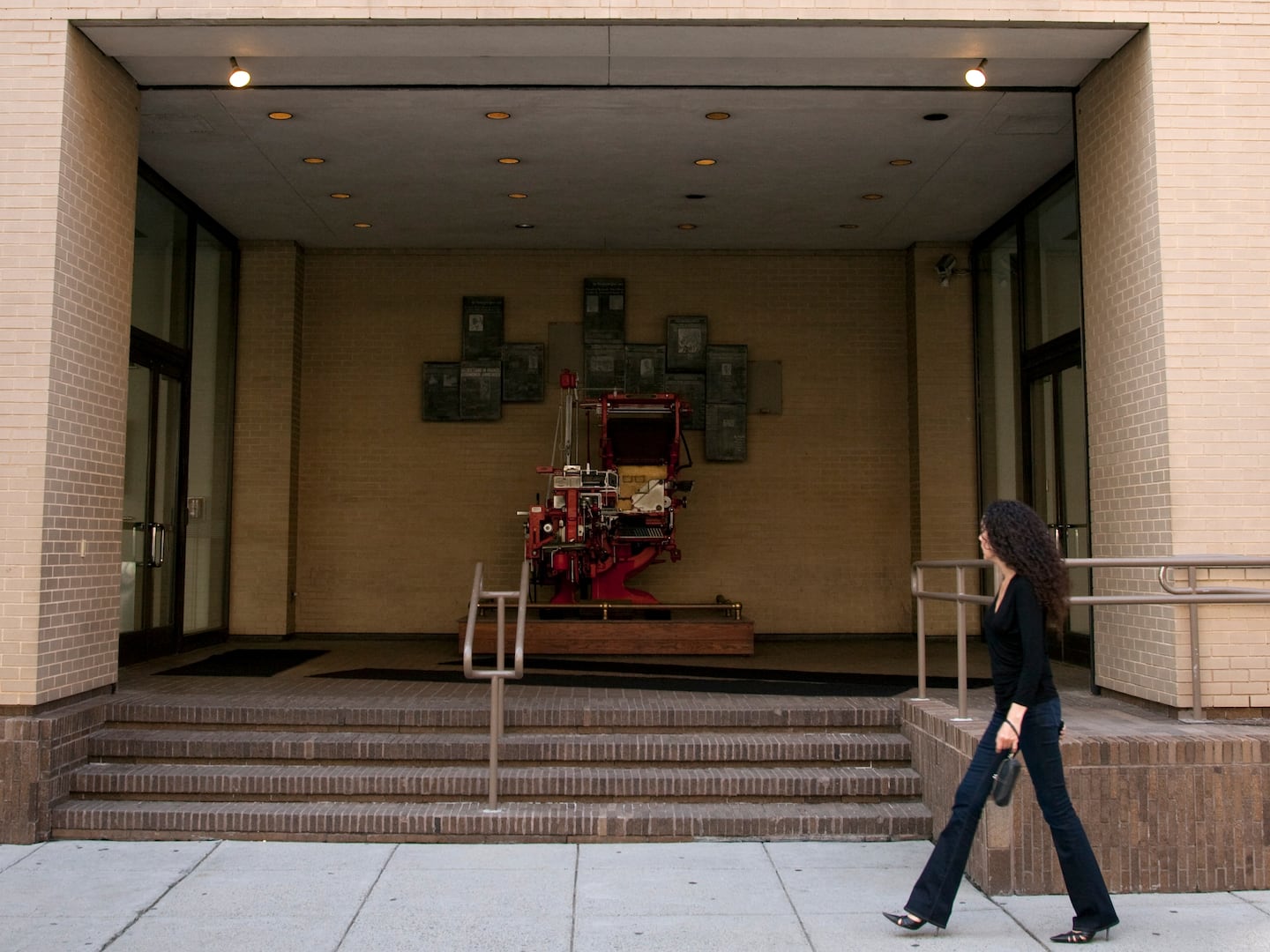Some writers are lucky enough to be remembered 50 years after they die, and a few are even beloved. What is vanishingly rare, however, is for a long-dead writer to remain controversial. Albert Camus is one of those exceptions, a writer who still has the power to ignite political passions, because he managed to incorporate the history of the 20th century so deeply into his writing. As a novelist, philosopher, and activist, Camus came to stand in the public imagination for a scrupulously moral approach to politics—a liberalism tempered by suspicion of ideology, and adamantly committed to the value of the individual human life. In all these ways, Robert Zaretsky points out in A Life Worth Living: Albert Camus and the Quest for Meaning, Camus resembles George Orwell—another writer who remains, even today, a symbol of humanism in politics.

Yet this very scrupulousness also prevented Camus from adopting the kind of absolute political positions that made Jean-Paul Sartre, his rival and sometime friend, a leader of the international Left. In particular, Camus is haunted today by his difficulty coming to grips with the Algerian struggle for independence, which convulsed France in the 1950s. The recent English publication of Camus’s Algerian Chronicles, a collection of his articles on the subject, launched a new round of debate and recrimination. Camus’s liberal admirers saw his insistence on a peaceful resolution to the conflict, his condemnation of violence on both sides, as further proof of his moral integrity. Meanwhile, his leftist critics saw his moderation as a species of evasion, condemning his failure to come down clearly on the side of Algerian liberation.
Today, when North Africa is once again the scene of revolutionary violence and the relations between the West and its former Arab colonies remain dangerously fraught, the debate about Camus and Algeria still resonates. It’s no wonder, then, that Algeria lies at the heart of A Life Worth Living. This short book is designed as an introduction to Camus—not so much to his individual writings, which are not covered in detail, as to the themes and concerns that dominated his life. Readers new to Camus will find in Zaretsky a deeply informed and warmly admiring guide, intent on burnishing the writer’s image rather than probing it.
Zaretsky organizes his study around five key words, each of which acts as a magnet, drawing quotations and associations to itself. The first of these, inevitably, is “absurdity.” If there is one philosophical concept associated with Camus, it is the idea that life is absurd, that is, ultimately meaningless. In The Myth of Sisyphus, he compares humanity to the figure from Greek myth, condemned to roll a boulder uphill for all eternity: like Sisyphus, we too are born to endless, pointless struggle. But where earlier generations thought that human effort had some divine purpose and ultimate reward, Camus is certain that it has none. That is why, as he famously wrote, “There is just one truly important philosophical question: suicide. To decide whether life is worth living is to answer the fundamental question of philosophy.”

Camus’s sense of the absurd was more than a cosmic insight; it was also, Zaretsky shows, the product of historical experience. Camus was working on The Myth of Sisyphus during the fall of France, in spring 1940, when millions of refugees fled before the advancing German armies. Though Camus barely alludes to these circumstances in his book, Zaretsky convincingly argues that the disaster reinforced his sense of the absurd as something just underneath the surface of ordinary life, waiting to burst forth in meaningless violence. “That moment of unraveling can be as banal as an overheard conversation or a glimpsed interaction,” Zaretsky writes, “or as extraordinary as a Stuka bearing down on you. It is the moment when we are woken from our routine lives by a whisper or explosion, either of which demands ‘Why?’ with equal and unexpected insistence.”
For Camus, the absurdity of life is something we must acknowledge, but never stop protesting against. We protest by asserting our own values in the face of cosmic indifference and historical injustice. For Camus himself, this meant joining the Resistance against the German occupation of France, and editing the leading underground newspaper, Combat. These were expressions of what Zaretsky, in another of his key terms, calls “fidelity.” Camus was faithful to democratic and socialist values, and to the fellow-fighters who embodied them, even at the risk of his life. That this risk was taken against the background of an absurd universe only makes it more splendid: “Fidelity begins… with the knowledge that strength, sacrifice and energy must serve the demands of the most fundamental of truths,” Zaretsky writes. “The outrage of a meaningless cosmos impels all of humankind to struggle against it.”
The resistance to Nazism, however, was morally clear-cut in a way that few political questions are. The Algerian war, on the other hand, appeared to Camus as a clash between two rights, as in an ancient Greek tragedy. He himself belonged to the community of French settlers in Algeria, the so-called pieds noirs, and he believed that these people—a million strong, with a presence dating back a century—had a right to live in their native land. When the FLN, the Algerian liberation movement, launched its campaign of terrorism against the pieds noirs, Camus condemned it strongly, even as Sartre was praising the redemptive power of anti-colonial violence. “People are now planting bombs in the tramways of Algiers,” he said in 1957, when he was in Stockholm to receive the Nobel Prize. “My mother might be on one of those tramways. If that is justice, then I prefer my mother.”
At the same time, Zaretsky shows, Camus was an early and fierce critic of French policy towards the Algerian Arabs. Some of his earliest writing consisted of newspaper reports on the appalling condition of the non-European population in Algeria. Yet what he hoped for—a truce between French and Arab Algerians, leading to a peaceful mutual co-existence—seemed ever less possible as time went on, and by 1956 Camus had stopped speaking publicly about the subject. To Zaretsky, this is an example of another of his great virtues, “silence”: “Algeria was, for Camus… a tragedy for which further words were worse than useless because, incapable of stemming the catastrophe, they would serve only to obscure its dimensions and meaning.” Where another observer might see failure, Zaretsky finds evidence of Camus’s moral integrity—as he does on every page of A Life Worth Living.






